English Universities Sport Chair, Barry discusses the additional playing opportunities that EUS offers student-athletes.
Having been part of the English Universities Sport program as both a player and a coach, Chairman Barry Squires has first-hand knowledge of how the EUS experience can benefit the development of student-athletes.
For the past four years, Barry has been responsible for driving forwards the future direction and delivery of English University Sport representative programmes as Chair, alongside his role as Head of Sport at the University of Brighton.
Through playing football as a student during his time at the University of Portsmouth, Barry earned his place on the EUS Football squad. The opportunity to compete with like-minded talented students led to an invitation for trials with Great Britain and later, a trial at a semi-professional club.
After earning his coaching badges, Barry then began working with the EUS women’s side as an assistant coach for several years before being named Chairman.
We sat down with Barry to ask how the EUS experience continues to evolve and improve, as well as the opportunities available to student-athletes.
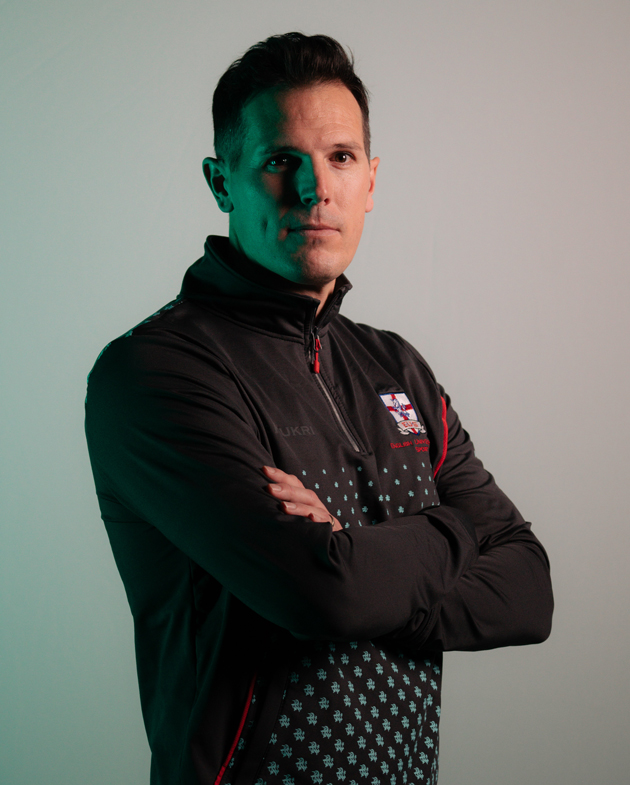
Can you tell us a bit about the history of EUS and how it came to be?
“EUS was formed around the 1990s by staff within the Higher Education sector to provide a pathway for student-athletes to represent their country.
Historically there were representative regional teams of North, South, and Midlands which then fed into an England rep side. Committee and coaching staff were all voluntary and gave up their time to develop the pathway.”
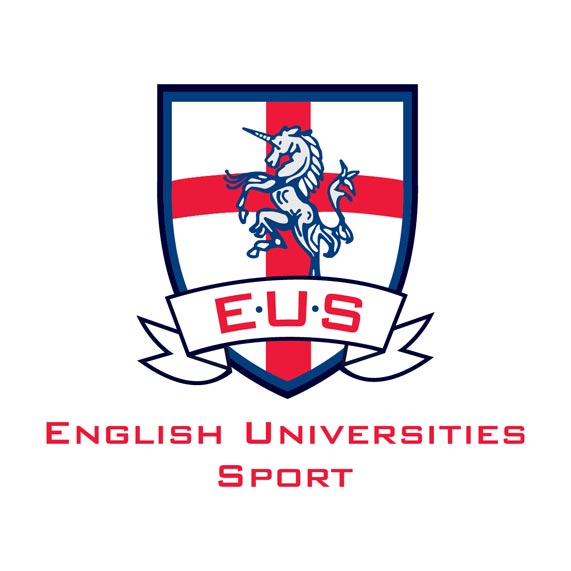
At the moment, what sports does EUS offer representative teams in?
“We currently field men’s and women’s teams in Basketball, Football, Rugby, Hockey, and Netball.”
What is the process for identifying and selecting athletes to the represent the representative squads?
“All English universities have the opportunity to affiliate with EUS which then allows their students to be nominated for EUS trials within each pathway. Regional trials are then conducted by head coaches and support staff for those nominated by institutions based on a paper and performance process.
National squads are then selected from this and a representative programme of fixtures against professional, academy, and rep sides take place between February to June.”
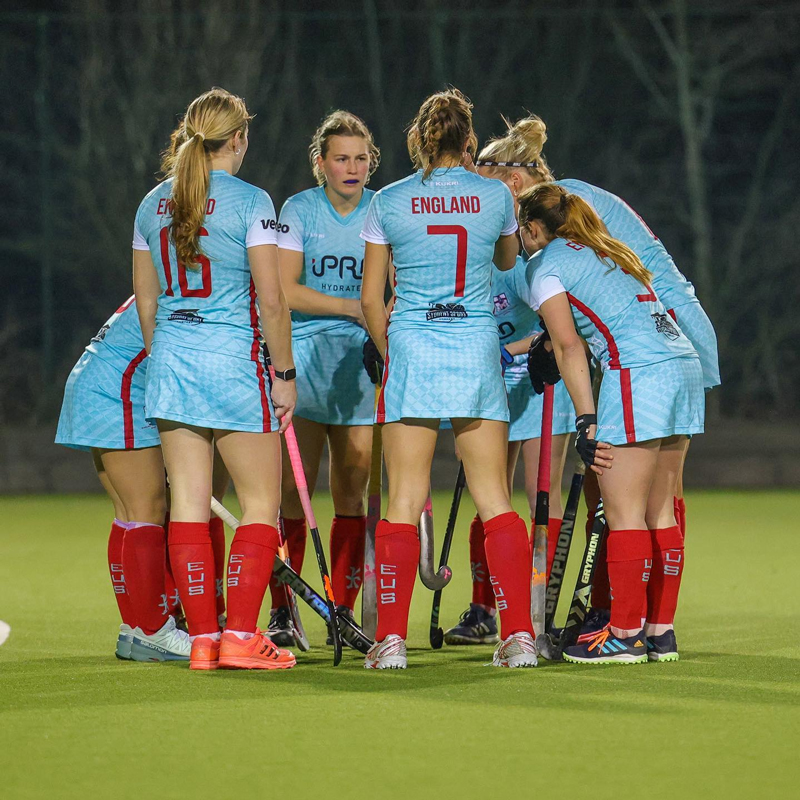
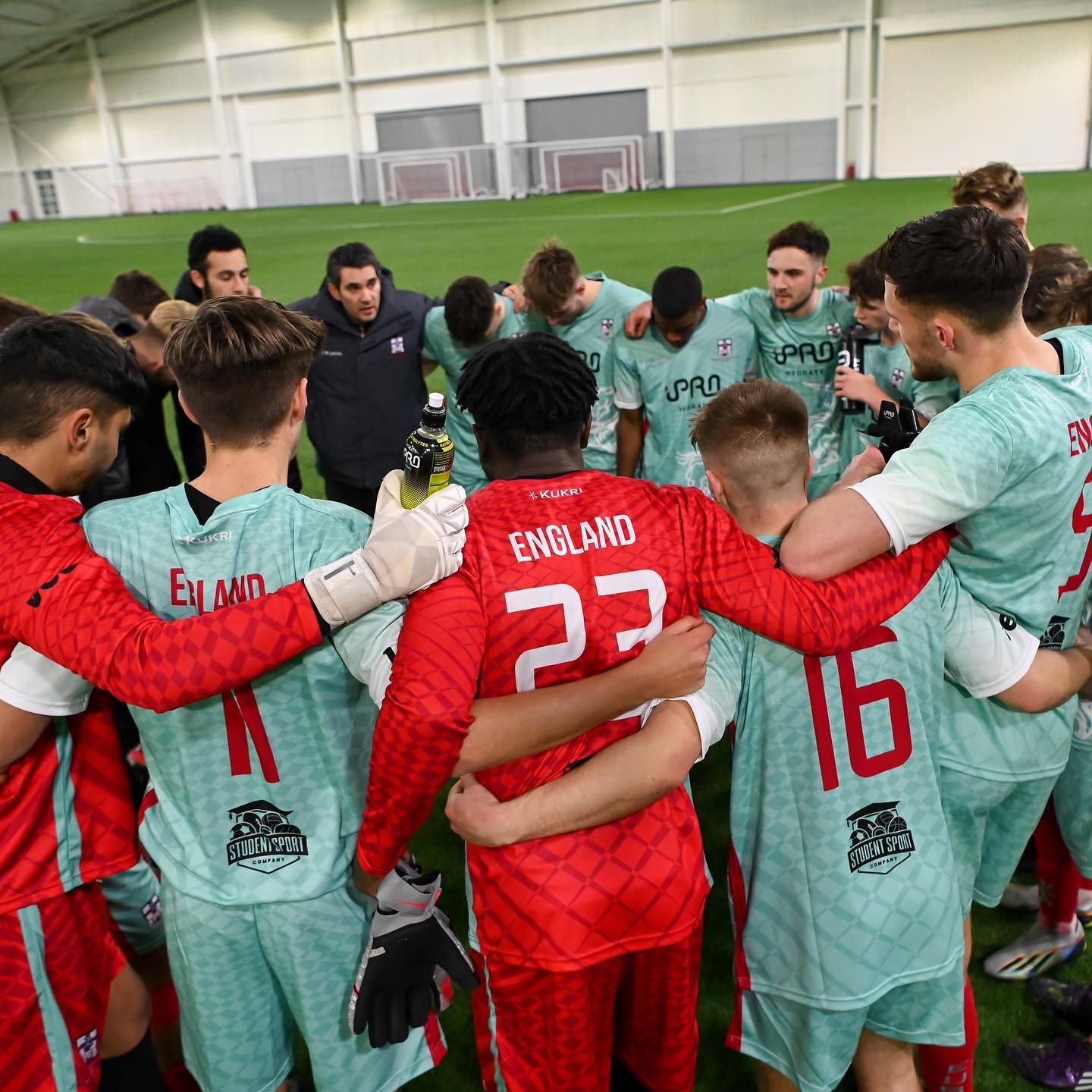
It may come as a surprise to some people, but you do not have to be an English Citizen to compete for the EUS. What is the typical diversity of an EUS team?
“Correct, as long as the student-athlete is registered at an English institution and affiliated to their AU or sports club then they are eligible to play within EUS, similar to representation within BUCS at an institutional level.
The diversity of student-athletes varies from sport to sport. We would typically have more UK students in programs such as hockey and netball whereas there are more international students trialing in football and basketball due to the popularity of those sports in their native countries.”
Once a student has been selected to an EUS team, what playing opportunities do they have?
“Once selected players will have the opportunity to represent EUs in a range of training camps and fixtures against various sides from professional sport.
For example, the Men’s Football team has played Man United U18s at the famous Carrington training ground. The EUS Netball team plays against both England U21s and Welsh U21s, and has now been invited to play against Welsh senior feathers team as part of their world cup training camp. Rugby 7’s has a more tournament-based program where they play in an international standard 7s tournament in Bournemouth.
Our Men’s Football will be playing against Yale College from the US this year as part of their tour, so we are seeing the interest grow globally which is great for us and adds to the experience of our students and coaching staff.”
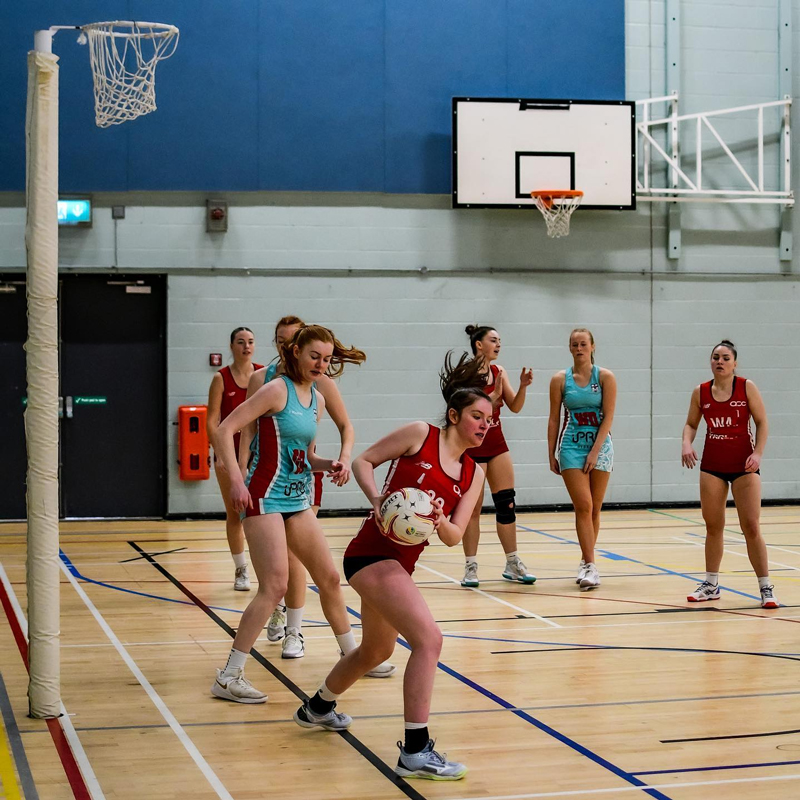
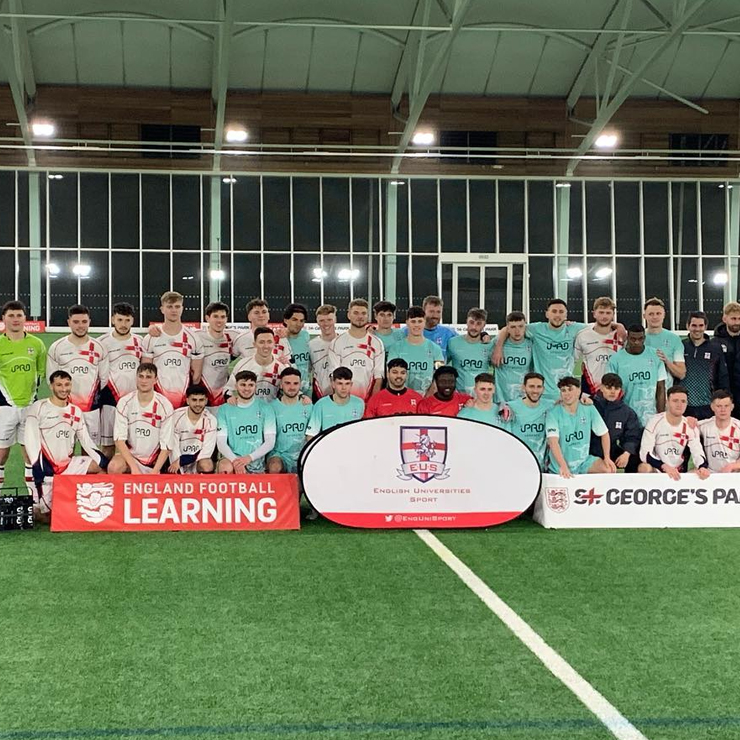
How do you feel that the EUS experience, from trials through to selection, benefits the overall student experience?
“For any student participating, they experience the value of being part of something bigger. Students can not only compete at a high level but also benefit from professional coaching, nutritional performance support, performance analysis via Catapult, and match analysis via Veo.
Some students go on to earn professional contracts at clubs and represent their country in senior national teams. We recently had two netball players go to the Commonwealth Games. Pathways progression is key for some but we realise for many it’s just about the opportunity to represent their country and that is a big part of their journey whilst in Higher Education.”
Finally, can you discuss any long-term plans or vision for the organization, and how you plan to continue to evolve and improve in the years to come?
“Our focus working with our members is to continue to develop the positive experience that our program brings for our student-athletes, whilst allowing the programmes to be a platform for aspiring talents coaches and support staff to be working in a representative environment.
So many talented coaches working within Higher Education and they are a key cohort of individuals we would like to support moving forwards.
One key priority is the return of Home Nations in 2024 which sees all nations compete over four days in a multi-sport event to be crowned Nations champion. 2016 was the last time the Home Nations took place, so along with other nations’ chairs we are doing a lot of advocacy work to build support within the members base and with BUCS to see its return next year.
This really has the opportunity to showcase the very best HE sport has to offer.”
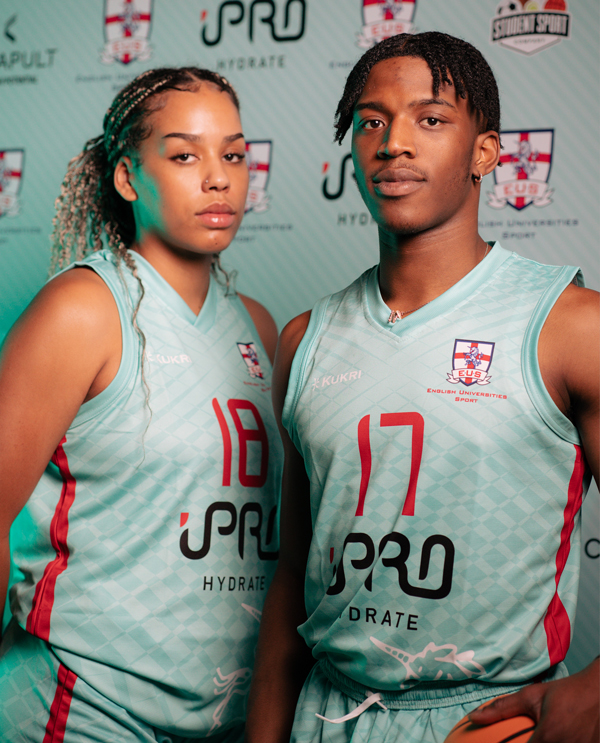
Want to learn more about English Universities Sport?
English Universities Sport (EUS) provides a range of sporting opportunities for students at universities throughout England, offering representative teams in Basketball, Football, Rugby, Hockey, and Netball.
As well as providing student-athletes with the chance to compete at a high level, students can also benefit from professional coaching support, performance support nutrition, performance analysis, and match analysis.
Learn more about English Universities Sport via the link below.
Please follow our social media channels to keep up to date with all things sport related across the Higher Education sector!



